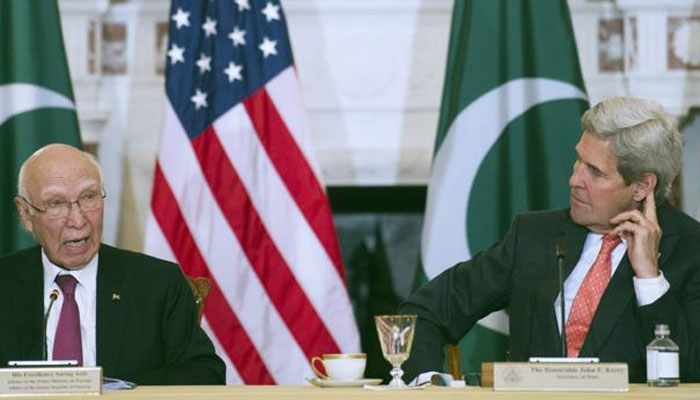Pakistan can no longer expect ‘blank cheques’ from US: Experts
 WASHINGTON: The Pentagon’s decision to block USD 300 million military aid to Pakistan for its failure to take sufficient action against Haqqani network shows that Islamabad can no longer expect “blank checks” from the US, according to experts.
WASHINGTON: The Pentagon’s decision to block USD 300 million military aid to Pakistan for its failure to take sufficient action against Haqqani network shows that Islamabad can no longer expect “blank checks” from the US, according to experts.
“The blank-cheques approach to soliciting Pakistan’s support against terrorism no longer holds in Washington among both legislative and executive branches of government – a development primarily the result of repeated American requests for Pakistani action against the Haqqani Network which has been implicated in attacks against Americans in Afghanistan,” Shamila Chaudhary, a former White House official and now a senior South Asia fellow, International Security Programme at New America, a think-tank, told news agency pti.
The Obama administration’s decision to withhold a portion of the Coalition Support Funds from Pakistan shows just how much US-Pakistan ties have changed since the days following the 9/11 attacks, when the Bush administration initiated a counter-terrorism-based assistance relationship with relatively few strings attached, she said.
Chaudhary was responding to questions on the decision of the US Defence Secretary Ashton Carter to not to give the necessary certification to the Congress that Pakistan is taking appropriate action against the Haqqani network. In the absence of which the Pentagon has blocked USD 300 million in funds to Pakistan.
“Under these circumstances, the US-Pakistan relationship could become more straight forward about where its interest align and where they converge – a dynamic that would ultimately be more beneficial for long-term relations,” she argued.However, she noted that she does not think the CSF determination means the US-Pak relationship is headed towards a downward spiral.
“There is still a great deal of bilateral engagement between the two countries on a range of issues, and the US firmly believes Pakistan must play a role in conversations about a political resolution in Afghanistan – which means there are still some equities remaining in the relationship that must be considered and protected, even as the US ramps up the pressure on Pakistan,” Chaudhary said.
“This step to hold Pakistan accountable for its failure to crack down on the Haqqani network was long overdue,” Lisa Curtis, an eminent South Asia expert, from The Heritage Foundation, said.”The move reflects that the US Congress has finally lost patience with Pakistan’s facilitation of militants directly undermining the US mission in Afghanistan,” she said.
“Fifteen years after 9/11, Pakistan stubbornly perpetuates its policy of harbouring the Taliban and Haqqani network. It’s about time the US holds back some aid due to Pakistan’s damaging policies,” Curtis added.
“I see it as a natural progression over time reflecting American disenchantment over repeated Pakistani promises which are never fulfilled,” said Aparna Pande, director, Initiative on the Future of India and South Asia at Hudson Institute, a Washington DC-based think-tank.
“For the last few decades Islamabad-Rawalpindi have always promised they will take action against terror groups and requested both for time as well as assistance (economic and military). In earlier years Washington was willing to give benefit of doubt but it appears that is changing,” she said.
The Haqqani Network has carried out a number of kidnappings and attacks against US interests in Afghanistan, as well as Afghan government and civilian targets.The group is also blamed for several deadly attacks against Indian interests in Afghanistan including the 2008 bombing of the Indian mission in Kabul that killed 58 people.

